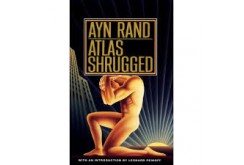
For better and worse, our Supreme Court is a political institution and not, despite its trappings, a temple of Olympian detachment -- as the Roberts court has amply demonstrated. The justices play a deadly serious intellectual game in which they deploy arcane legal reasoning to justify imposing their sometimes highly partisan rulings on the rest of us.
The way this rarified game is played, as any court watcher knows, is that the justices must find some “objective” external authority for their decisions. They typically select relevant items from a voluminous carpet bag stuffed with various statutes, legislative histories, precedents set by other courts and, especially, what is written in our Constitution. For instance, the currently popular doctrine of “originalism” seeks to invoke the precise meaning of the Constitution itself, and what the Founding Fathers supposedly intended, as an overriding criterion that can supersede even established laws and precedents.
The problem with this modern-day form of scholasticism is that it can easily be used to distort or even subvert the broader objectives of our society, not to mention the objectives of the Constitution itself. As stated in the Preamble, the reasons for forming “a more perfect union” were not just to secure our freedom from the British Crown or our own government but to “establish justice” and to “promote the general welfare.”
So, if the Supreme Court justices take an absolutist position on any particular clause – say Second Amendment gun rights -- while being cavalier about the harm that can be caused to the general welfare by failing to ensure that there are also strict controls over the use (and misuse) of guns, then surely they are undermining the broader objectives of the Constitution.
Since we are all expected to play this judicial game by its well-established rules, perhaps the time has come to advance what might be called “the doctrine of fairness” – the idea that the general welfare clause of the Constitution ultimately trumps the purpose and meaning of its parts, or the interests of any particular stakeholder in our society. In fact, this is more consistent with the “judicial oath” that each newly appointed justice must take. The oath states that the justice will “administer justice without respect to persons, and do equal right to the poor and the rich.”
There is some risk in this approach. A reliance on the overarching purpose of the Constitution as a whole could, of course, be used in the wrong hands to weaken the parts, especially the Bill of Rights. Our judges and legal scholars are generally uncomfortable with using such sweeping legal claims; they prefer to decide cases on narrow grounds, as a rule. But if we can develop a clearly defined and delimited vision of what the general welfare clause means (and prohibits), this would go a long way toward buffering our legal system against egregious doctrinal abuses.
One approach to articulating such a vision is what I refer to as the “Fair Society” model. The idea that fairness should be the guiding principle in any society was first articulated by Plato in his great philosophical dialogue, the Republic (its little-used subtitle is “Concerning Justice”). As Plato defined it, justice refers to an aspect of our relationships with one another. It involves “giving every man his due.” Over the centuries, there have been countless arguments among scholars over what Plato meant by the word “due”. However, the emerging, multidisciplinary science of human nature sheds much new light on this issue.
Whatever may be our perceptions, aspirations, or illusions (or, for that matter, whatever our station in life), biological survival and reproduction is our underlying purpose, both as individuals and as a society. Indeed, any organized, interdependent economy represents at heart a “collective survival enterprise,” where cooperation, competition, and conflict inevitably co-exist.
As I explain in detail elsewhere, this biological reality necessitates three distinct but complementary principles of social justice, or fairness – equality in relation to our basic needs (an imperative for all of us), equity, or “merit” in relation to our varying individual efforts and accomplishments (or transgressions), and reciprocity, or a balancing of the costs and benefits associated with being a participant in the ongoing survival enterprise.
Finding the proper balance among these three fairness principles is a fundamental challenge for our system of justice, I believe. As the great American legal scholar Learned Hand expressed it long ago: “Justice is the tolerable accommodation of the conflicting interests of society,” not a partiality to any one interest over another.
It would also be fitting for our Supreme Court justices to remain humble about their role in our system of government and to remember that their assertion of the right to interpret our laws and Constitution is not, in fact, contained in our founding document. Technically, it’s a usurpation – the invocation of an “implied” power by an early chief justice, John Marshall, that subsequent generations of Americans have been willing to accept, so long as this power is not grossly abused.
In the end, the claims of justice as fairness must take precedence over any particular legal doctrine, or interest, or institution, or else we will risk undermining the implicit “social contract” that ultimately binds our people together.
Originally Published in 2012 by the Institue for the Study of Complex Systems.
Peter Corning is the author of the forthcoming book, SYNERGISTIC SELECTION: HOW COOPERATION HAS SHAPED EVOLUTION AND THE RISE OF HUMANKIND (World Scientific, 2018), and THE FAIR SOCIETY: THE SCIENCE OF HUMAN NATURE AND THE PURSUIT OF SOCIAL JUSTICE (University of Chicago Press, 2011). He is also the director of the Institute for the Study of Complex Systems, a one-time science writer for Newsweek and professor in Human Biology at Stanford University, and the author of several previous books. His website can be found at www.complexsystems.org











